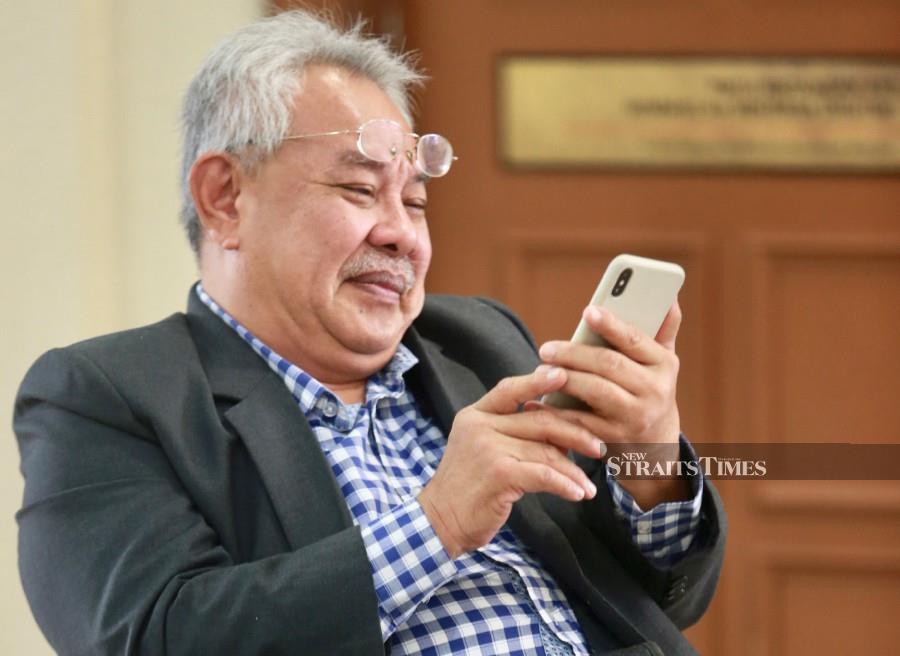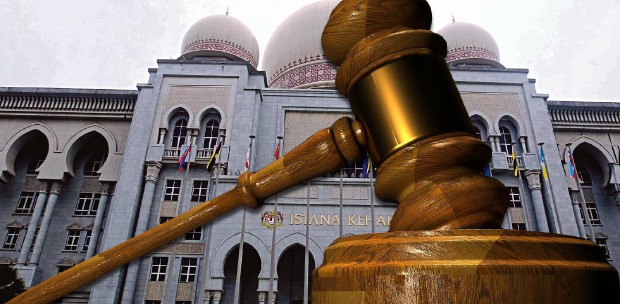KUALA LUMPUR: A former Kuala Lumpur City Hall senior officer, known to have performed a 'sujud syukur' each time he's acquitted in court cases, was today found guilty of receiving RM200,000 in bribes relating to the issuance of work permits.
High Court judge Muniandy Kannyappan this morning overturned Sessions Court judge Rozina Ayob's decision in September last year to discharge and acquit Sabudin Mohd Salleh of two counts of receiving the said amount.
He said Rozina had erred in her decision when she found that the third prosecution witness, Wong May Kuan, had no necessity to give RM200,000 to Sabudin.
This, he said, was as there was cogent and unrefuted evidence that Sabudin had received the amount as gratification as testified to by May Kuan and corroborated by second prosecution witness Wong Kim Kwok, from whom May Kuan had borrowed funds in order to pay the accused.
"The Sessions Court judge erred when she did not consider the evidence of both the accused and his witnesses during cross-examination. The evidence of Kim Kwok lends credence to the evidence of May Kuan, where the latter paid RM200,000 to the accused with assistance of procuring the said monies from Kim Kwok, and the second prosecution witness' evidence remains unrebutted.
"Payment made was for the contract works awarded to May Kuan, which is proven by the existence of salient contract documents like the Work Permit and Certificate of Progress Payments which has got Sabudin's approval.
"And the second defence witness, in his testimony under cross-examination, confirmed that the accused had the power to give the job to Dusari Niaga (a company related to May Kuan). The findings of the Sessions Court judge went against this evidence," he said.
Muniandy also referred to the third and fifth defence witnesses' evidence that showed Sabudin had full power to appoint a contractor for the work and also to appoint a contractor of his choice whom to his mind is able and appropriate to carry out the contract works.
He further found Rozina had committed an error of law when she misdirected on the application of law to the evidence of May Kuan, who for all intents and purposes should not be regarded as an accomplice pursuant to Section 52(1)(a) of the Malaysian Anti-Corruption Commission Act 2009.
"The finding of the Sessions Court judge was not supported by evidence, and the decision was made against the weight of evidence and no proper judicial evaluation of the evidence.
"By virtue of the errors and misdirection by the Sessions Court judge, the appellate intervention is justified for this court to correct it on appeal.
"On that score, this court decides to allow the appeal by the prosecution, thus setting aside the order of discharge and acquittal and substitute it with a finding of guilty and conviction on the two charges preferred against him under Section 17(a) of the (MACC) Act, in pursuant to Section 316(a) of the Criminal Procedure Code."
The prosecution was handled by deputy public prosecutor Datuk Wan Shaharuddin Wan Ladin and lawyer K. Theivaendran appeared for Sabudin.
Muniandy then fixed Aug 15 to hear mitigation and for sentencing for the accused.
Sabudin, who was then senior deputy director with City Hall's civil engineering and urban transport division, was charged with receiving a bribe of RM200,000 in cash from May Kuan, a subcontractor of Dusari Niaga tasked with grinding and resurfacing works for the city council at the time, as an inducement for him to issue work permits to the company.
He was charged with committing the offences at a petrol station convenience store in Jalan Lingkaran Tengah 2, Bukit Antarabangsa, here, and in front of his residence in Ukay Perdana, Ampang, on June 9, 2018, and Jan 17, 2019, respectively.
His charges were framed under Section 17(a) of the MACC Act 2009, which carries a maximum of 20 years' jail, a fine amounting to no more than five times the amount of bribe received, whichever is higher, upon conviction.






